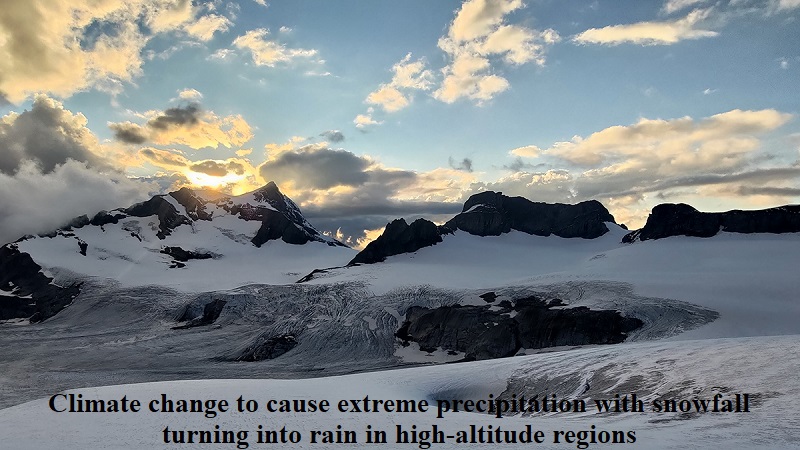
A recent study, published in the journal Nature, has highlighted the alarming consequences of climate change by revealing that global warming will lead to a shift from snowfall to rainfall in high-altitude regions, resulting in increased risks of landslides and floods. Previous research has underestimated the intensity of rainfall in mountainous areas compared to snowfall, making this new study significant.
Led by Mohammed Ombadi, an environmental data scientist at Lawrence Berkeley National Laboratory, the study found that with each one-degree Celsius increase in global temperature, there would be a 15 percent surge in extreme rainfall in higher elevations. This figure is almost double the previous estimates for combined rain and snow. The impact is expected to affect regions above approximately 2,000 meters (6,500 feet) in elevation.
Mountain regions and downstream areas house around a quarter of the world’s population. While landslides primarily affect local areas, floods have more widespread consequences for people living downstream. Moreover, the increased rainfall can also cause soil erosion, posing risks to agriculture, ecosystems, and exacerbating the danger of floods and landslides. These threats are compounded by the melting glaciers in these mountain ranges and river valleys.
Dr. Ombadi and his team analyzed historical data from 1950 to 2019 and incorporated climate change projections for the 21st century. They focused on temperate and Arctic regions in the Northern Hemisphere due to limited data availability for the tropics and the Southern Hemisphere. Through various global warming scenarios, their models consistently demonstrated an escalation in extreme rainfall corresponding to each degree of warming.
The researchers found that the higher the elevation, the greater the increase in extreme rainfall. However, this relationship was not linear, as different mountain ranges in the Northern Hemisphere exhibited slight variations in the risk of extreme rainfall, which necessitates further investigation.
This study highlights the urgent need to address climate change and its repercussions. The findings emphasize the importance of considering the shift from snowfall to rainfall in high-altitude regions and the subsequent risks of floods, landslides, and soil erosion. Efforts to mitigate climate change and adapt to its consequences are crucial in safeguarding vulnerable communities in mountainous areas and downstream regions.

Post Your Comments